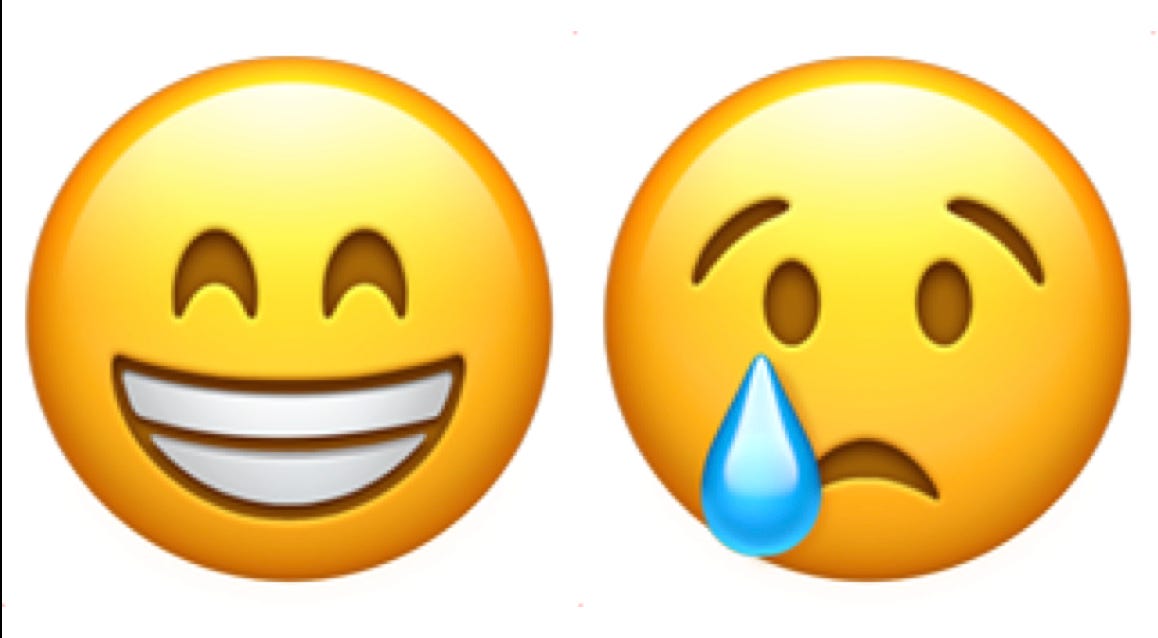This Substack is about the climate for coffee — trying to preserve what we can of it, both for Arabica and Robusta. Essential to that ambition is finding the right climate for conversation — one that attracts folks to the discussion and motivates them to get involved in a constructive way.
The response to the threat of Climate Change by the human race has not been encouraging, so far. Most people don’t think about it at all and those that do are divided into disparate groups — from those that believe we need to do everything we can, yesterday; to the folks that claim it’s all a bunch of bunk.
There is a debate among those that do accept that Climate Change is real as to how hard to press a discourse with folks that are undecided. The idea is to inform those people enough to motivate them to engage in constructive action without discouraging them to the point of feeling overwhelmed and discouraged.
The book, “Not The End of the World,” by Hannah Ritchie, Ph.D., presents, as its title suggests, a counter-intuitively positive outlook as to the present state of our planet and its possible future. Dr. Ritchie, a researcher and data scientist is also the deputy editor of the online publication, Our World in Data (OWID). This site and, to a lesser extent, Dr. Ritchie’s book, have been criticized for being unrealistically optimistic in regard to interpreting what the data indicates as to the fate of our planet. OWID, for its part, has been called out for glossing over many of the current threats to “life as we know it” on Planet Earth. Many of the organizations funding the site include the Cato Institute, a creature of the Koch brothers. Arch Fiend-of-the-Moment, Elon Musk, has also supported OWID and the less demonically branded Bill Gates has, as well (OWID is his “favorite site”).
The premise of Our World in Data, and of the book, as I read it, is summed up in a position statement which provided the inspiration for the site, “The world is awful. The world is much better. The world can be much better. All three statements are true at the same time.” This position statement is attributed to the founder of OWID, Max Roser, according to an article which is very critical of both the site and Dr. Ritchie’s book, The Unbearable Anthropocentrism of Our World in Data, by Christopher Ketcham, and published in CounterPunch.Org.
There are different ways to approach a challenge and some of us need to tackle things with the assumption that we’re going to succeed and others (like me) might embark upon the premise that, while success is unlikely, the stakes are so high that we need to at least try, regardless. That’s how I feel with regard to our present predicament vis-a-vis Climate Change; it has previously felt more forthright to say, “I’ll try, despite the grim odds,” but lately I’ve been thinking that a more motivating premise might be to proudly proclaim that we’re going to prevail.
Optimism and pessimism are hard wired into our brains, the optimistic outlook is on the right side and pessimism on the left (which is no surprise, huh?). (Check out; The Neural Basis of Optimism and Pessimism) Once we have the facts we can sort through them and choose from which neural platform to act. There are situations where it’s clearly beneficial to approach things pessimistically, like whether you can make it through a yellow light when approaching a busy intersection — giddy optimism will not serve you well and dour pessimism might save your life as you slow down, and stop, and wait for the next full-fledged green light.
In the case of Climate Change, there is no penalty for tackling the challenge of convincing others that we need to act, or voting for particular candidates or legislation. The big risk is that we might later feel that didn’t do enough, soon enough. It’s also possible that you might realize later that it really was hopeless, and that you wasted your time — but I’d rather end up there than missing out on the chance of making a difference.
Besides, it has recently been observed that those who spend more time dwelling upon more optimistic outcomes live longer.
Speaking of living longer, I recall hearing (on the BBC?) that a group of older folks were washed out to sea during the recent earthquake in Thailand . Some of them managed to survive for a couple days floating in the ocean and holding on to scraps of lumber. Their rescuers asked them what kept them going and they all said, “Thinking of seeing my grandchildren again.” It was an essentially optimistic fantasy, maybe unrealistic, given their situation, but it served them well, those that could hold on to it. I choose to hold on, too, not for my own grandchildren, but for a world of them, and the hope that they will hold on for theirs. In the meantime, I’ll try to keep my pessimism to myself, and stay out of that very familiar room in my brain.













Share this post